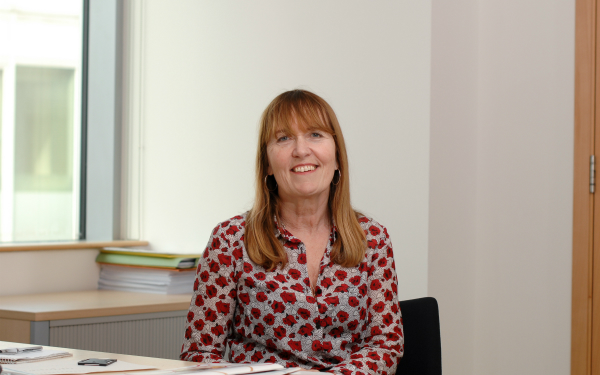
The variation in the number of cases social workers are being asked to hold in different children’s services is “too wide”, Ofsted has warned.
Eleanor Schooling, the regulator’s national director of social care, said it was not right that caseloads ranged from 7 to 34 in different authorities. She said councils that had improved social care performance had often made cutting caseloads a “key priority”.
Schooling urged employers to create working environments that left social workers feeling supported and valued. She said local authority leaders had “a huge role” to play in ensuring that IT systems and HR processes enabled “high quality social work”, rather than getting in the way of it.
Writing in her latest commentary on social care, Schooling said: “As in any professional career, without creative practice and continual learning, practitioners can become overwhelmed or lose motivation.”
Ofsted had seen councils where the “building blocks” were in place to promote a culture of learning and this had boosted social worker retention, she said.
Common features among this group were good development opportunities on offer for newly qualified and experienced staff, high quality supervision and protected caseloads. Some of the councils had also arranged for staff to be members of academic and research organisations, she added.
Schooling said some councils had also boosted support for social workers by building links with other agencies such as housing, probation and charities to make support easier to access. For complex family court work, some authorities had also drafted in specialist support to help social workers “get it right for children”.
“I think it is fair to say that social work is demanding of individuals: it requires emotional strength and resilience, decisiveness, and a commitment to continual learning,” said Schooling.
“Social workers must be thoroughly supported in their place of work so that they can make use of these qualities.
“Senior management must work together and challenge one another effectively to ensure that key priorities are aligned with the needs of practice on the grounds.
“Social workers must be both challenged and supported in their supervision by a manager who shares the burden of risk that they face on a daily basis, and who is committed to their personal and professional development. Resources must be managed well to keep caseloads low and work satisfaction high.
“In places where they are getting these things right, we see high retention of good social workers who work together to deliver high quality services to children. In the best local authorities, we see social workers innovate and develop new ways of working that progress the profession and improve outcomes for children and families.”


 Bournemouth, Christchurch and Poole
Bournemouth, Christchurch and Poole  Hampshire County Council
Hampshire County Council  Lincolnshire County Council
Lincolnshire County Council  Norfolk County Council
Norfolk County Council  Northamptonshire Children’s Trust
Northamptonshire Children’s Trust  South Gloucestershire Council
South Gloucestershire Council  Wiltshire Council
Wiltshire Council  Wokingham Borough Council
Wokingham Borough Council  Children and young people with SEND are ‘valued and prioritised’ in Wiltshire, find inspectors
Children and young people with SEND are ‘valued and prioritised’ in Wiltshire, find inspectors  How specialist refugee teams benefit young people and social workers
How specialist refugee teams benefit young people and social workers  Podcast: returning to social work after becoming a first-time parent
Podcast: returning to social work after becoming a first-time parent  Podcast: would you work for an inadequate-rated service?
Podcast: would you work for an inadequate-rated service?  Family help: one local authority’s experience of the model
Family help: one local authority’s experience of the model  Workforce Insights – showcasing a selection of the sector’s top recruiters
Workforce Insights – showcasing a selection of the sector’s top recruiters 

 Facebook
Facebook X
X LinkedIn
LinkedIn Instagram
Instagram
So, manageable caseloads allows for good quality social work. Surprising that.
Whilst no-one will disagree with this the problem is that little is being done on the ground to address it. It doesn’t help when OFSTED carries out a monitoring visit as they did in my LA recently and then state in the formal letter that they believe that holding 20 cases in LAC is manageable.
This was very disappointing because there was nothing to back this up other than the bland statement and although they were looking at LAC and Leaving Care they did not comment on the fact that a number of Leaving Care workers were carrying around 30 cases.
As we are constantly told when management want to avoid addressing caseload numbers, it is difficult to come up with a number, because each case will be different, depending upon what is happening at a particular time. Even a couple of cases could consume the worker for a week.
I think more needs to be done to empower social workers and others to challenge high caseloads so they can say no without being intimidated.